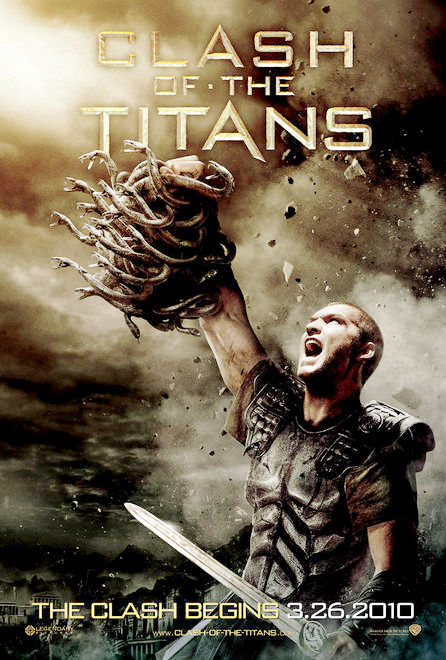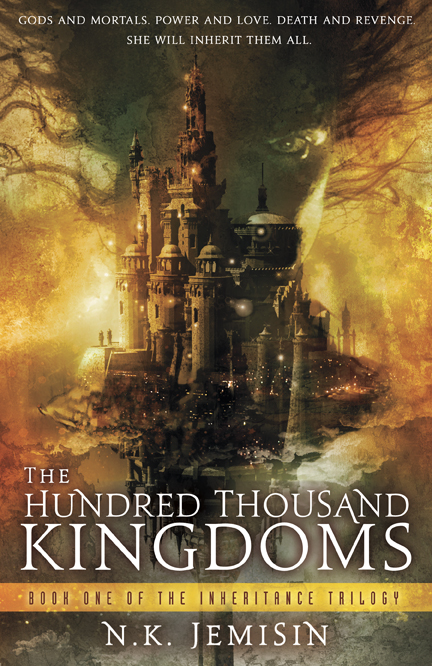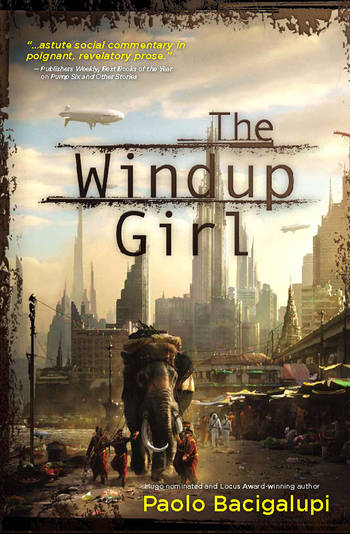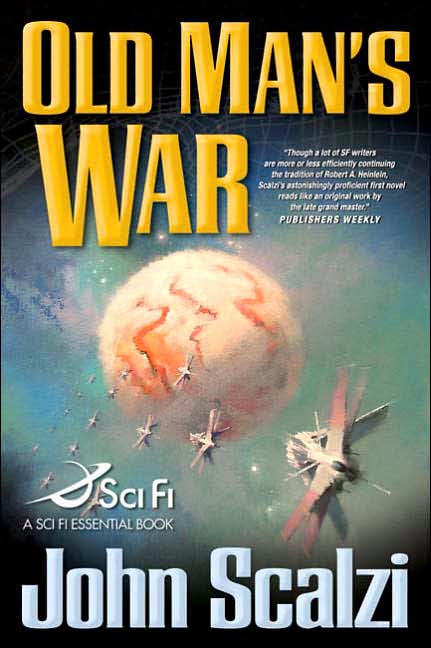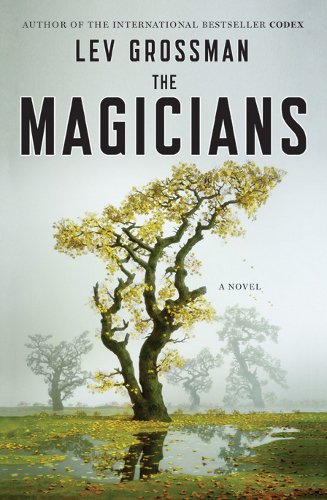
On Friday, the SyFy channel unveiled its latest addition from the Stargate franchise, Stargate: Universe to high ratings, showing that the third series has a good potential at life for the newly relaunched channel. This new version is an enormous leap forward for the series, evolving characters, storylines and the entire universe in which the show is set to bring about what looks to be a very promising addition to both the franchise and the genre.
Stargate: Universe opens quietly, with several location shots of space and the Destiny, the ship on which the show will be taking place, with an eventual cut to the familiar image of an active Stargate. A single soldier flies through the opening (Lt. Matthew Scott), falling and quickly checking his surroundings. What happens next is a mad rush of people and equipment. There is no explanation, no introduction of characters or their situation. It proves to be one of the most compelling moments in the franchise to date, and is so out of character for the Stargate Universe that this could very well be a different show, unrelated to the Stargate franchise, one that utilizes only one of the elements of the original show to any large degree, the titular Stargate.
The rest of the episode is shown through alternating scenes, the frantic scenes onboard the Ancient ship and the moments leading up to their predicament. Notable characters, such as Daniel Jackson, Jack O'Neill and Samantha Carter all make short cameos, which helps transition this universe from the familiar world of SG-1. I was happy to see that the characters got their moments, (they did the same for Atlantis), but I was equally happy that these appearances were just placeholders, showing that the franchise and storylines moved on after SG-1, and that there were other things to explore. The episode storyline is also very different from what longtime viewers of SG-1 or Atlantis might expect, both in story and execution. With the unconventional start to the episode, we go back to see Eli Wallace, a typical geek-type, solves a puzzle on an MMORPG and is visited by O'Neill and Dr. Rush, who tell him that the puzzle was to help solve a problem that the SGC was having off world. Eli is brought to a spaceship (where we see Daniel Jackson at his best, explaining things in long form) and brought to Icarus Base, where Rush is working out an equation to uncover the meaning behind the 9th chevron of the Stargate. Because of the planet's unique properties, this is the ideal place to study, for power reasons. Shortly after the delegation's arrival, the planet is attacked and the team, with Eli's help, is able to dial the new address with the 9th Chevron, bringing the storyline to The Destiny, an Ancient ship designed to explore, but that is also falling apart.
Thus, the series begins, not with the very typical elements that defined the earlier shows, but with even more basic ones - air supply (the first three episodes are called Air, Parts 1, 2 and 3, with 3 airing next Friday) food and water, with the very survival of the people, all unprepared for this unexpected journey. This is a huge change from the two prior series - the characters were laid out, the story generally involved a new planet or technology, and everyone was home by supper. This changed over the evolution of the shows, but by and large, this formula didn't change all that much. This, on the other hand, takes the formula and throws it through the Stargate. While this isn't BattlestarGate like a lot of people had thought, it's clear that SyFy has realized that the method of storytelling that Battlestar Galactica utilized would work well for this show, and from all appearances, it's been utilized very well.
What I liked most of all was that this isn't a rehash of SG-1 like Stargate Atlantis was. SG-1 was a very fun show, one that really grew with time, but a show that really held to many of the same conventions throughout. Thus, it was consistent, but as viewers tastes in shows matures, the show did not. Atlantis was essentially a rehash of SG-1, just with different characters in a different galaxy, but with many of the same stories and even situations carrying over. This show, on the other hand, seems to seek out a very different path with the overall intent of the storyline, going over some new territory and retreading some very basic older ground.
What the show does to the franchise is that it removes many of the assumptions that the earlier shows held. Travelling to another planet, after a while, became very routine and as such, much of that energy and enthusiasm vanished in the first couple seasons, and were aptly replaced by the major storylines that developed. This is in no way a bad thing, but it was a noticeable thing. With Universe, that sense is back, but with it is much of the danger and feeling of the unknown. Where SG-1 sprinted through stories, Universe is taking the slower and more deliberate route, which should be more realistic, but more interesting to the modern viewer.

Like in SG-1, the core of the story is exploration; really capturing what I believe is the central essence of Science Fiction, exploration. This is demonstrated after the refugees from the base find themselves on the ship, and it is explained that they can fulfill something important while onboard, exploring the universe around them, essentially making the best of what is a really terrible situation. This is where the show delves into new territory, with a race for survival for basics - security and air. This was explored a bit in Atlantis, but not nearly with as much urgency as here. SGC members tread around the ship, almost getting killed when they open the wrong doors, and they race to repair the atmospheric conditions on board by plugging a couple of leaks that they find and fixing the air scrubbers. This is something that never seemed to happen in the original shows, and to some extent, it feels a little more like the original film upon which the shows are based. This is something that will most likely continue with the rest of the series, as the characters begin to inventory what they have - tape, paper, but not much when it comes to necessities. Hugo Award winning author John Scalzi has been brought in as a consultant, and noted that the crew has a finite number of resources, such as bullets and food, and that this figures into the style of the show.
What is also very promising for the rest of the series is the characters. While initially reading over the early plots and character descriptions, I wasn't very hopeful for how the show looked. Fortunately, SyFy has assembled a very promising cast of characters, each with their own moments in the limelight as the story progressed in the first episode. There is enough background hinted at for each character for a whole multitude of upcoming stories, somewhat along the lines of what was done in LOST, which is good. We have a number of characters that really aren't the cut and dry, good and bad sort of characters. Rather, we're treated to numerous shades of gray, and I'm not sure where these characters will end up by the end of Season 1. Of the entire cast, however, Dr. Nicholas Rush, played by Robert Carlyle is the most intriguing, with a hinted tragic past and unclear motivations, and will clearly be a person to watch during future episodes. A number of the other characters are also quite interesting, and I am eager to see what they do with a couple of them.
Universe, when it was first announced, was not a show that I was looking forward to. Early news reports did not look good, and even with the first trailers, I wasn't won over by the premise. It was not until I began to hear that this show would be different, not only in how it was shot, but how it was structured, that I began to take more of an interest, and watching the results, I was amazed at how the franchise had grown up to what I saw before me. This is a good move for SyFy and the Stargate franchise, because it shows that the story can move onto different story models and styles, rather than essentially rehashing much of the same, as Atlantis did with SG-1. Atlantis failed after only five seasons, compared to SG-1's massive run of ten seasons. Indeed, the eventual failure of SG-1 is most likely the same as Atlantis's - the show simply did not change enough from the original model, even with a fairly new cast and set of storylines that would have carried it into future seasons. Universe seems to be that change that the franchise has so desperately needed, one that retains the familiar aspects of the shows that we know and love, but with newer elements that have been shown to work very well in a number of newer shows.
Air, Parts 1 and 2, are a fantastic start to the new show, and if they are any indication of how this season will fare, it will be very interesting indeed. Already, it is amongst the best two hours in the entire franchise, and I have a feeling that the rest of the show will put Universe as one of the better shows in the franchise, if not the best of the three. I am now eagerly awaiting the rest of the season.







